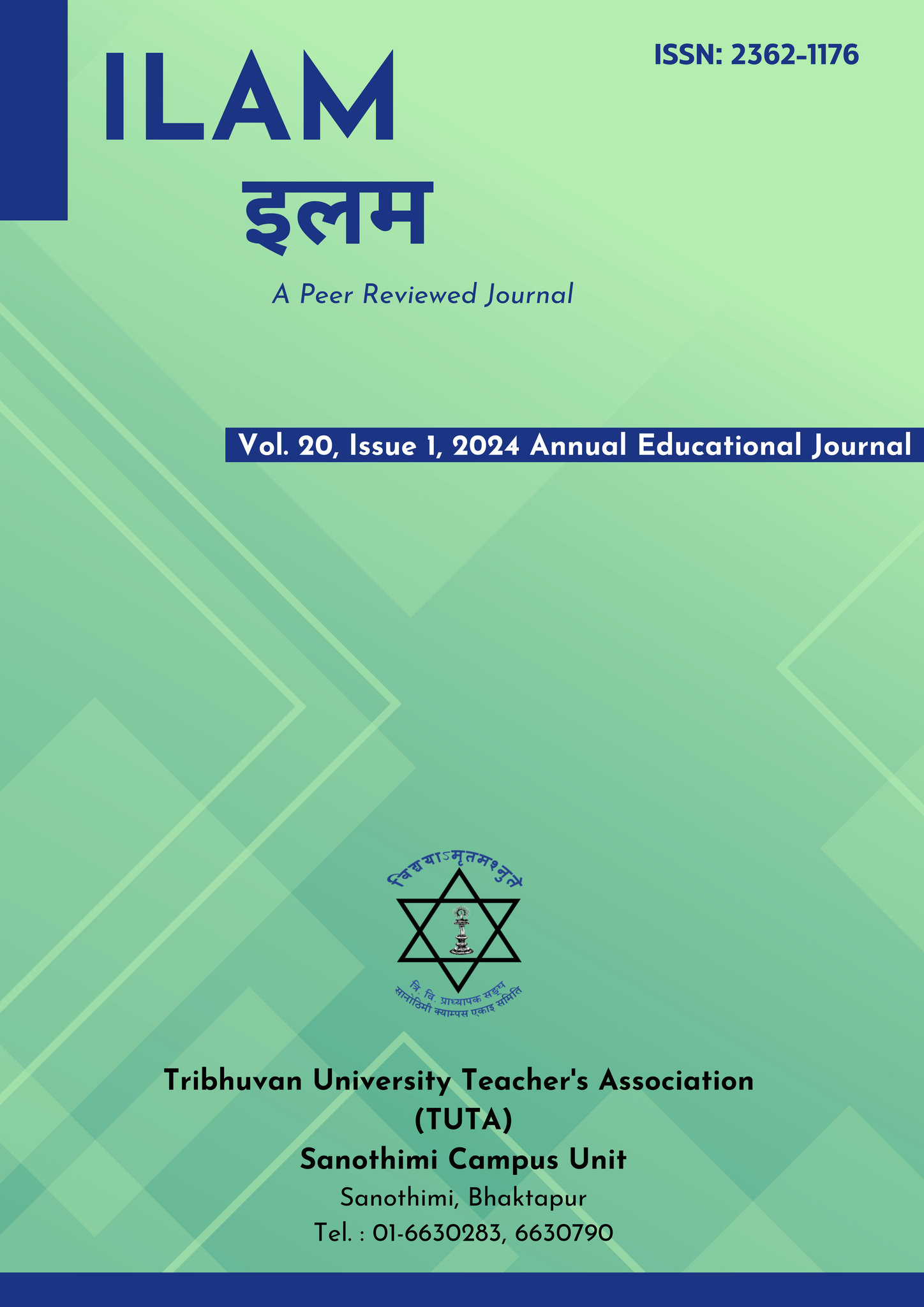Teacher Professional Development Program in Nepal: An Inquiry of the Benefits and Challenges
DOI:
https://doi.org/10.3126/ilam.v20i1.67304Keywords:
pedagogical skills, professional development, quality education, teaching materialsAbstract
Several education sector plans and projects have been implemented in Nepal for the advancement of educational transformation in the past few decades. Among them, the recent- year plans such as SSRP (School Sector Reform Plan, 2009-2016 AD) and SSDP (School Sector Development Plan, 2016-2023 AD) have introduced Teacher professional development (TPD) as one of the key components for education reformation and quality education. This article attempts at exploring the consequences of TPD program, particularly, the benefits and difficulties of TPD activities to the teachers in the secondary level schools in Nepal. In the study, the headmasters, and secondary level senior teachers of the selected schools were the informants. Likewise, an interview questionnaire was used as the research tool to collect required information; and the information collected was analyzed and interpreted thematically. Some of the major benefits of the TPD program to the teachers found in the study were that they could participate in training and workshops; and that they could get opportunities to be involved in discussion and collaborative activities. On the other hand, problems in the implementation of their knowledge and skills into the classroom, and lack of infrastructural, financial and pedagogical support for TPD activities were some of the major difficulties. The concerned authorities need to be more responsible to make improvements in the existing TPD situation at the secondary schools in Nepal.




